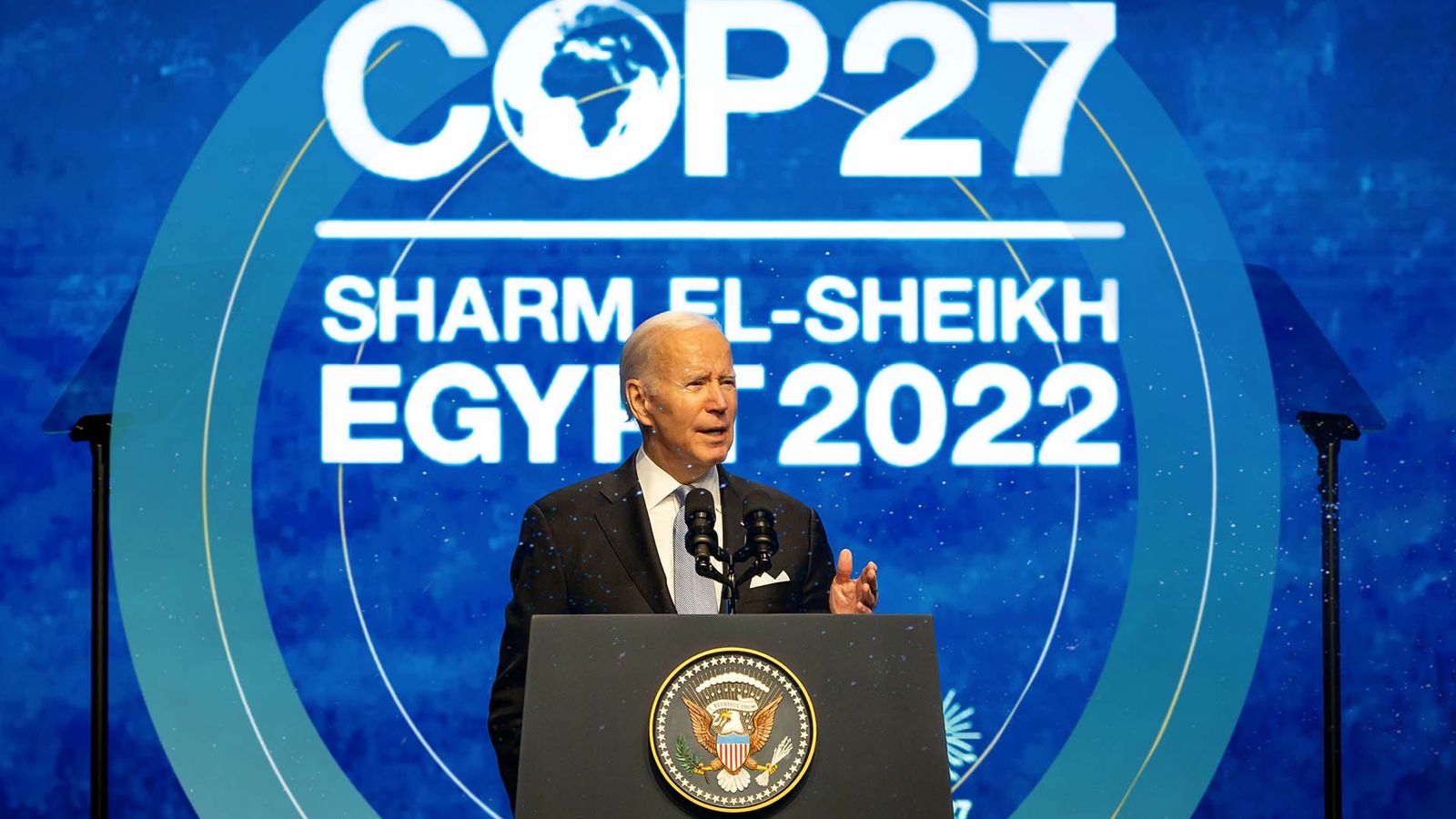COP27 will be remembered for establishing a loss and damage fund – a genuine breakthrough for those most vulnerable to the climate crisis.
But it will also be remembered as a chaotic summit that teetered on the brink of disaster.
A summit where the ambitious goal of limiting global warming to 1.5 degrees Celsius, was nearly lost forever.
“This cannot be the place where 1.5 dies” was the harried refrain of diplomats and negotiators shuttling between meeting rooms.
Their concerns were legitimate.
As food ran out, water supplies ran dry, and sewage at one point ran down the street, exhausted delegates struggled to make progress on actually solving the problem of global warming, rather than just paying for the destruction caused by it.
The work on what’s known as mitigation, or reducing carbon emissions, was fraught from the beginning.
COP27: Countries agree fund for climate-hit poor nations – but doubts remain over 1.5C warming limit
Walrus seen miles from Arctic habitat in Normandy, northern France
COP27: countries poised to sign off on fund for climate damages
More than 600 fossil fuel lobbyists pushed against India’s proposal to agree to the phasing down of all fossil fuels instead of just coal, as agreed in Glasgow last year at COP26.
Working alongside petrostates – nations whose economies are heavily dependent on the extraction and export of oil or natural gas – they were successful.
In fact, the agreement emerging from Sharm El-Sheikh barely improved on the Glasgow Climate Pact, with the exception of the mention, for the first time, of the importance of renewable energy.
Subscribe to ClimateCast on Spotify, Apple Podcasts, or Spreaker.
The bitter compromise on mitigation ambition in order to get loss and damage over the line left some openly questioning the entire COP process – multilateralism itself.
There are still enough major climate players who believe fervently that the COPs are the only game in town, but amid the distractions of a war and an energy crisis, Egypt sorely tested that faith.
Watch the Daily Climate Show at 3.30pm Monday to Friday, and The Climate Show with Tom Heap on Saturday and Sunday at 3.30pm and 7.30pm.
All on Sky News, on the Sky News website and app, on YouTube and Twitter.
The show investigates how global warming is changing our landscape and highlights solutions to the crisis.






















